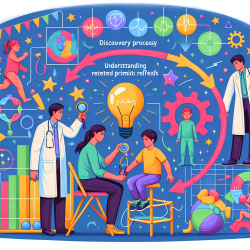Introduction
The development of efficacious prevention programs for addictive behaviors among adolescents is crucial. The study titled The efficacy of a targeted PREVENTION programme for addictive behaviour (PREVENTURE) among vulnerable ADOlescents in France - study protocol provides valuable insights into how targeted interventions can reduce the prevalence of binge drinking and associated risks among adolescents. For practitioners in speech-language pathology and related fields, understanding and implementing the outcomes of such research can significantly enhance the quality of care provided to vulnerable youth.
Understanding the Preventure Program
The Preventure program is designed to target specific personality traits associated with higher risks of addictive behaviors, such as impulsivity, sensation-seeking, negative thoughts, and anxiety. By focusing on these traits, the program aims to reduce the prevalence of binge drinking and improve overall adolescent well-being. The program employs cognitive behavioral therapy (CBT) techniques and motivational interviewing (MI) strategies, making it a robust tool for practitioners.
Key Findings and Implications
The study conducted in France highlights several key findings:
- The targeted intervention significantly reduced binge drinking episodes among adolescents aged 14 to 17.
- Secondary benefits included reduced associated substance use, lower levels of anxiety and depression, and improved quality of life.
- The program was well-received by participants, indicating high acceptability and potential for broader application.
These findings suggest that practitioners can benefit from integrating personality-targeted interventions like Preventure into their practice. By addressing the underlying personality traits that contribute to addiction, practitioners can offer more personalized and effective care.
Practical Implementation for Practitioners
For practitioners looking to implement the findings from the Preventure study, consider the following steps:
- Training and Education: Engage in training sessions to understand the nuances of CBT and MI techniques used in Preventure.
- Assessment Tools: Utilize tools like the Substance Use Risk Profile Scale (SURPS) to identify at-risk adolescents based on personality traits.
- Program Integration: Collaborate with schools and healthcare providers to integrate Preventure into existing adolescent care frameworks.
- Continuous Evaluation: Regularly assess the outcomes of the program to ensure it meets the needs of your adolescent clients.
Encouraging Further Research
While the Preventure program shows promise, further research is necessary to explore its long-term impacts and potential adaptations for different cultural contexts. Practitioners are encouraged to participate in ongoing studies and contribute to the growing body of evidence supporting targeted prevention programs.
Conclusion
The Preventure program offers a data-driven approach to reducing addictive behaviors among adolescents by targeting specific personality traits. By implementing the insights from this research, practitioners can enhance their skills and improve outcomes for children in their care. To read the original research paper, please follow this link: The efficacy of a targeted PREVENTION programme for addictive behaviour (PREVENTURE) among vulnerable ADOlescents in France - study protocol.










